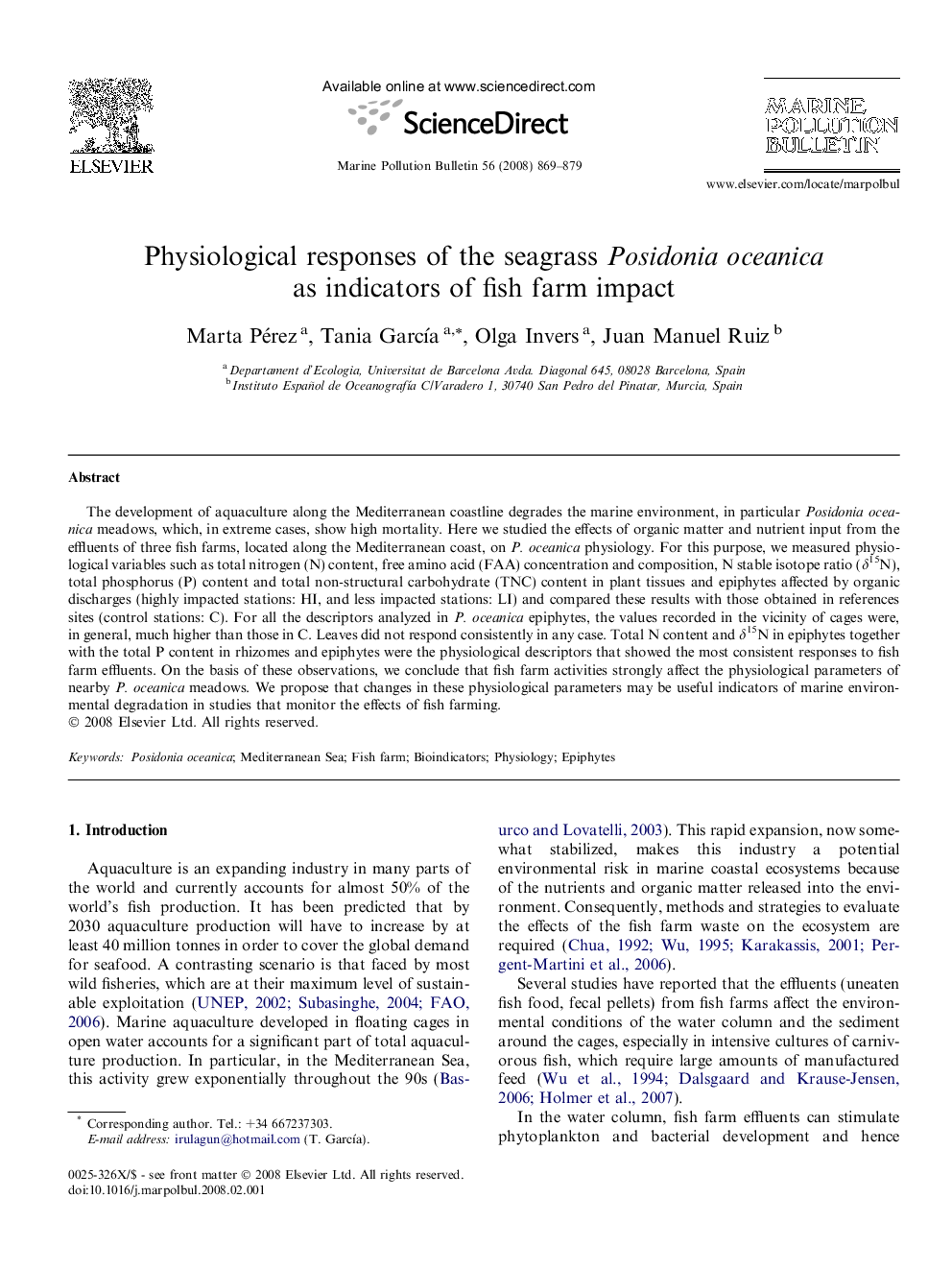| Article ID | Journal | Published Year | Pages | File Type |
|---|---|---|---|---|
| 4477587 | Marine Pollution Bulletin | 2008 | 11 Pages |
The development of aquaculture along the Mediterranean coastline degrades the marine environment, in particular Posidonia oceanica meadows, which, in extreme cases, show high mortality. Here we studied the effects of organic matter and nutrient input from the effluents of three fish farms, located along the Mediterranean coast, on P. oceanica physiology. For this purpose, we measured physiological variables such as total nitrogen (N) content, free amino acid (FAA) concentration and composition, N stable isotope ratio (δ15N), total phosphorus (P) content and total non-structural carbohydrate (TNC) content in plant tissues and epiphytes affected by organic discharges (highly impacted stations: HI, and less impacted stations: LI) and compared these results with those obtained in references sites (control stations: C). For all the descriptors analyzed in P. oceanica epiphytes, the values recorded in the vicinity of cages were, in general, much higher than those in C. Leaves did not respond consistently in any case. Total N content and δ15N in epiphytes together with the total P content in rhizomes and epiphytes were the physiological descriptors that showed the most consistent responses to fish farm effluents. On the basis of these observations, we conclude that fish farm activities strongly affect the physiological parameters of nearby P. oceanica meadows. We propose that changes in these physiological parameters may be useful indicators of marine environmental degradation in studies that monitor the effects of fish farming.
